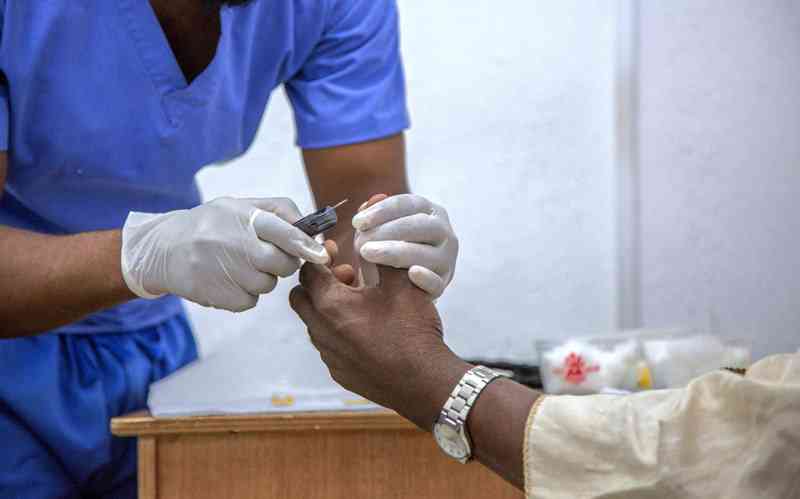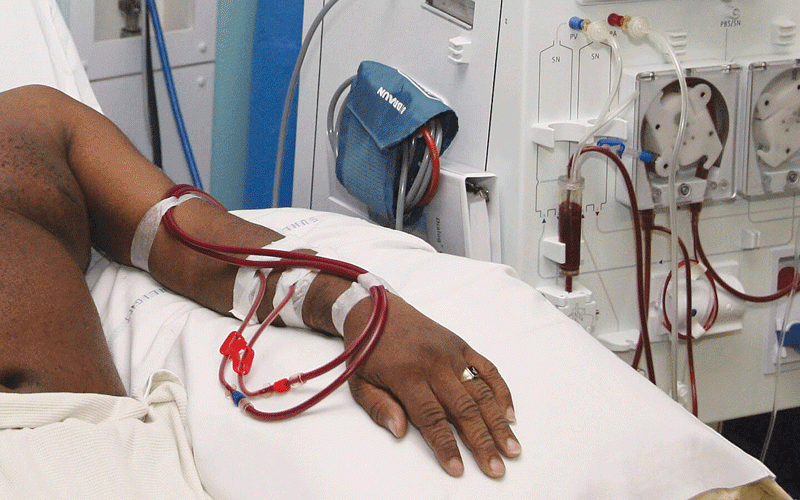
WHEN Priviledge Laimoni’s daughter was diagnosed with diabetes, the distraught mother first dismissed it as an act of evil spirits.
“I thought it was a result of evil spirits, which was buttressed by some spiritualists and I nearly let my daughter down,” said Laimoni who is barely affording the medication for her daughter and is having to reduce doses for her so as to stretch the medication as long as possible.
“The doctors kept monitoring us. She is on very expensive insulin, at first the one she was using was going for US$28 per penset and she needs over three pensets per month. She is also on another type of insulin which costs US$15 per penset and she needs four pensets per month,” she said.
Owing to the mismanagement of the disease, Laimoni’s daughter has since developed sight challenges.
Laimoni is, however, not alone in the struggle against the disease.
The World Health Organisation (WHO) estimates that 422 million people worldwide have diabetes and the majority of them live in low-to-middle-income countries.
WHO says cases and prevalence of the disease that is presently claiming about 1,5 million lives each year have been steadily increasing over the past few decades, and Zimbabwe has not been spared.
According to the United States Centers for Disease Control and Prevention (CDC), diabetes is a chronic (long-lasting) health condition that affects how one’s body turns food into energy.
- Health talk: Covid-19: Remain vigilant as Omicron roams
- Health talk: Covid-19: Remain vigilant as Omicron roams
- Toxic smoke chokes Karoi residents
- Co-operate to curb malaria, Mash West farmers urged
Keep Reading
“Your body breaks down most of the food you eat into sugar (glucose) and releases it into your bloodstream. When your blood sugar goes up, it signals your pancreas to release insulin. Insulin acts like a key to let the blood sugar into your body cells for use as energy,” explains CDC.
“With diabetes, your body doesn’t make enough insulin or can’t use it as well as it should. When there isn’t enough insulin or cells stop responding to insulin, too much blood sugar stays in your bloodstream. Over time, that can cause serious health problems, such as heart disease, vision loss, and kidney disease. There isn’t a cure yet for diabetes, but losing weight, eating healthy food and being active can really help.”
For Zimbabwean parents like Laimoni, managing their diabetic children’s lifestyles to fend off the disease is proving a real nightmare.
Speaking on the sidelines of the launch of the Eli Lilly childhood, non-communicable diseases (NCDs) project in Harare on Thursday, parents of diabetic children said the condition came with a very high cost because they have to manage both the medication and diet.
Apart from that, the children have to be taught to adapt to the lifetime condition as a way of ensuring long life.
“I would like to ask government to help us with our children's diabetes medication and medical bills. Most of the time when we visit the hospital with our son, he is admitted as his diabetes is always high,” said Tatenda Mukwesha from Mbare.
She said her son was having a hard time fighting the condition and of late she had been having sleepless nights owing to challenges linked to her son’s condition.
Another parent Ancilla Murwisi said her daughter was diagnosed with diabetes last year when she was five years old.
She said being unemployed, she has had to resort to unsafe means of managing her daughter's diabetes because she could not afford the necessary treatment and diet associated with managing the condition.
“My daughter is on Actraphane, we are having challenges buying the medication and as for the syringes, they cost US$1 for five so we have resorted to using the same syringe four or five times. Now we are being asked to pay US$6 when we get a chance to buy the insulin from hospital. This is a trying time for me as I am unemployed,” she said.
A study by the South African Journal of Clinical Nutrition says Zimbabwe has the third highest estimated per person cost of diabetes care in sub-Saharan Africa. These costs are related to the management of diabetes complications, including hospitalisation.
Chief executive officer of Community and Family Empowerment Vision, Debra Kavande said there was need to complement medication with diet in managing diabetes.
She said knowing the right food for diabetics was important and would help the parents in managing their children's conditions.
“It is just about knowing which foods to give the children, in this case most traditional foods are ideal and not very expensive. One may be able to produce the food themselves making it cheaper to manage the diabetes,” she indicated.
Speaking at the launch of a countrywide programme to control NCDs in children, Health and Child Care deputy minister John Mangwiro said government was aware of the challenges being faced by parents of children with diabetes.
“Our ministry is committed to tackle and join the global community in order to prevent and control NCDs. We have partnered with the United Nations Children’s Fund, Unicef to address paediatric NCDs.”
“The Eli-Lilly project aims to support the government’s health systems so that we reach as many children as we can with such chronic cases.
“The project was initiated in 2022 and will run for four years. We are one of the five countries selected to implement this Unicef-Eli Lilly project in the world,” he said.
The Eli Lilly project is a partnership between the Health ministry and Unicef to fight NCDs affecting children and adolescent age groups.
It is a five-year project that is funded by Unicef and focuses on health systems strengthening in various capacities with a bias towards children and adolescents affected by NCDs.
It is estimated that one in 10 children has diabetes and the figure is expected to rise as there hasbeen an increasing emergence of new cases.
- Follow us on Twitter @NewsDayZimbabwe











